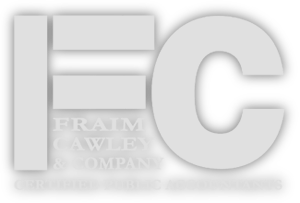“He was a tycoon, then a cheapskate
Went out looking for a keepsake
To tuck into his suitcase on Viceroy’s Row
He had a satchel full of cash
And dishes full of ashes
He went from boom to bust
In the blinking of a lash”
– “Viceroy’s Row”, Elvis Costello & The Roots
For the past couple of months my articles for business owners have been focused on price and the need to charge appropriately for your product/service. The first one talked about how customers can sometimes be fickle (“What have you done for me lately?”), making it prudent to always charge properly.
The last one went over how charging too little can diminish perceived value and can reduce the total number of customers you get (not just the average revenue per customer).
There is at least one other aspect that is worth discussing: the type of customers you are attracting. And I don’t mean blue-collar vs. white collar, rich vs. poor, etc. Rather, I’m talking about their mindset and how they view you.
I started noticing a trend a few years ago. I talked to a number of business owners and they all said the same thing: the people who pay you the least want the most. Customers who get charged very little end up being the most demanding and often seem to be impossible to please.
Again, this is counterintuitive. The biggest clients (who need a lot of services and pay significantly more than the average customer) are by far most frequently the least demanding and are the most reasonable. Now of course, since they are good customers we do everything we can to give them the best service possible, go above and beyond, etc. But ultimately, they are the ones who most value the service that is given to them. They are pleased with the work done or the product sold and recognize its worth and your efforts. And they are happy to pay appropriately.
The reverse side of that coin is the person who works hard to pay you as little as possible while showing little appreciation for what you do for them. I’ll use my business (a service business rather than a product one) as a for instance. Picture an imaginary/hypothetical client of mine who pays for $100 of my time or services and then ends up being impossible to please. They call all the time with questions, there is always some issue they’ve having – but they never want to pay. They think that $100 gives them unfettered access for the rest of the year for free.
And this is hardly an isolated phenomenon. The person who wants to pay $500 for a website is somehow much more demanding than the person who is paying $10,000. The guy buying a $1,000 Yugo expects, against all logic, a lot more than the guy buying the $40,000 Lexus. You name the product/service, it is a long-noted phenomenon in business that the people who pay or buy the least also tend to appreciate you the least – and expect you to cater to them the most.
Why? Because they ultimately don’t value you. And they tell you that by just how little they’re willing to pay you. The customers who value your expertise, value your time, and know your worth show it – every time they write you a check.
Talk is cheap. The truest expression of love (in business, not life!) is the degree to which a customer is willing to utilize your services or product to the degree that is accurately appropriate for them (not trying to get by with the bare-bones amount) and is willing and ready to pay you.
Thankfully there is an easy way to fix the problem: YOU must properly value yourself. Charge what you’re worth, and all of these issues resolve themselves. The ungrateful bunch go away because they don’t value you enough to pay appropriately. And you keep the wonderful, pleasant, fantastic customers who understand that value you bring to them. And you attract more just like them – people who want to pay for quality.
As Michael Scott would say “win-win-win”. You’ll ensure that you make the money you deserve. You’ll actually have more of the type of customers you want coming through the door. And you will in turn value them, and be happy to work hard for them. Those customers are the ones that make your life in business pleasure-filled rather than pressure-filled.
Does it get much better than that?
Any accounting, business, or tax advice contained in this communication, including attachments and enclosures, is not intended as a thorough, in-depth analysis of specific issues, nor a substitute for a formal opinion, nor is it sufficient to avoid tax-related penalties.




